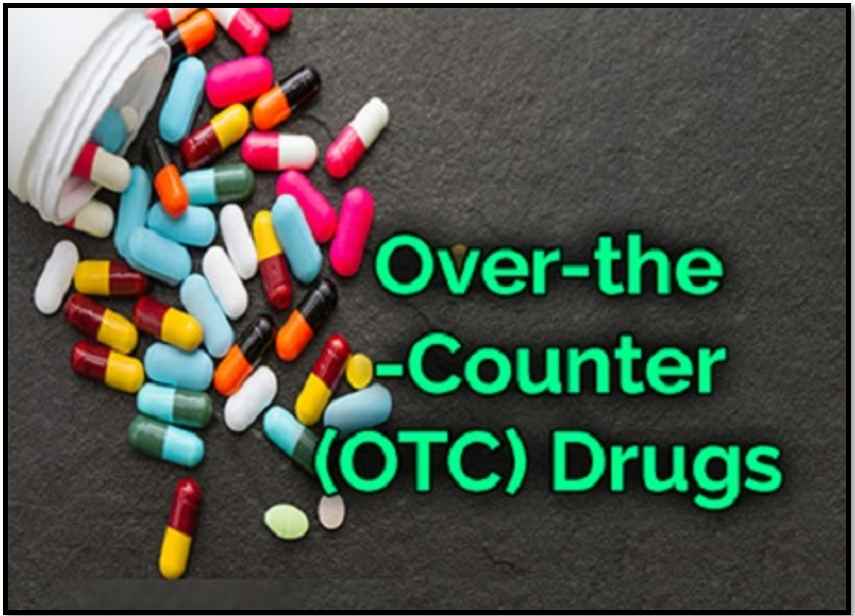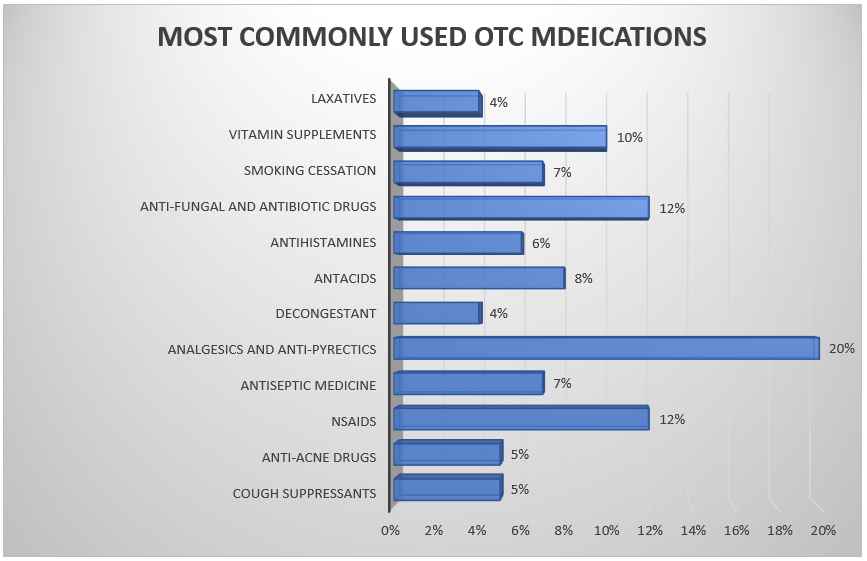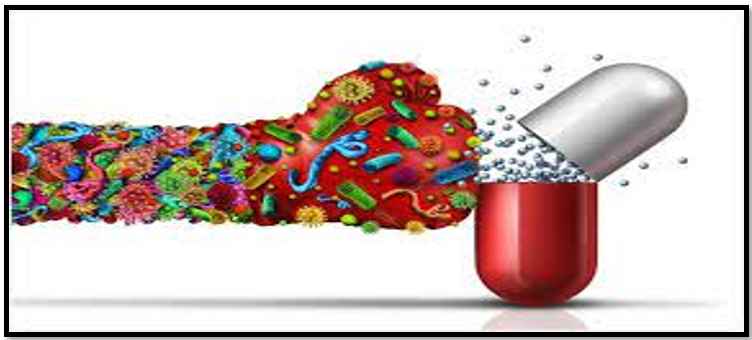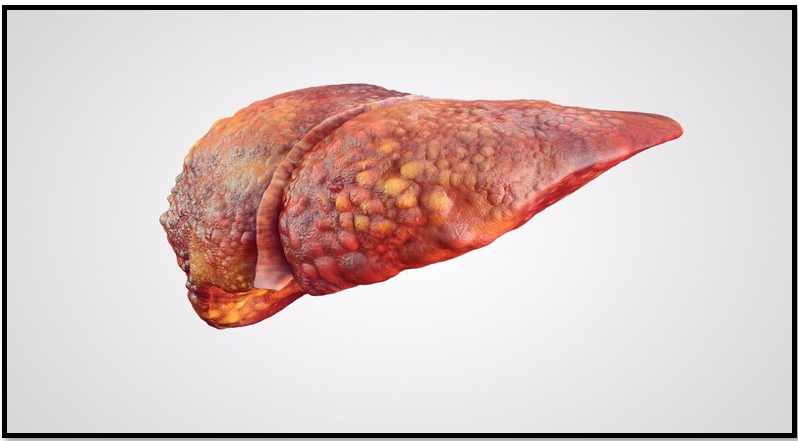
Introduction
- Every person will use the medication at some time in their life to diagnose, treat, cure, or prevent disease. Medications are generally classified into two types based on their distribution to the patient; Prescription medications and Non-prescription or Over-The-Counter medications. Prescription medications can be bought by a patient only with a doctor’s prescription. Non-prescription or Over-The-Counter (OTC) medications can be bought by a patient without a doctor’s prescription from the pharmacy. These can be bought easily anytime from the nearby pharmacy. These medications are consumed by many people with the aim of getting rid of the disease like fever, chills, cold, cough, stuffy nose, body pains and other specific pain, constipation, diarrhoea, Indigestion, gas, heartburn, ulcers in the stomach and intestine, acne, fatigue, etc. In the recent 21st century the use of OTC medications has become a trend. The use of OTC medications has both benefits and risks. Long-term use of OTC medications may lead to adverse effects.
List Of OTC Medications
- Topical Antibacterial/antifungal OTC Drugs
- OTC bacitracin topical ointment
- OTC clotrimazole (vaginal use)
- OTC clotrimazole (topical use)
- Lotrimin OTC miconazole 2% ointment
- OTC miconazole vaginal suppositories cream
- OTC triple antibiotic cream Neosporin
- Pain Reliever OTC Drugs
- OTC acetaminophen tablets, capsules, suppositories, liquids, drops
- OTC EC aspirin 81 mg, 325 mg
- OTC aspirin 325 mg Ecotrin
- OTC ibuprofen Motrin
- OTC naproxen Aleve
- Smoking Cessation OTC Drugs
- OTC nicotine patch
- Duration for all formulary smoking cessation meds=84 days/year
- Topical Dermatological (“skin/scalp”) OTC Drugs
- OTC capsaicin
- OTC DOAK TAR DISTILLATE, OIL
- hydrocortisone (prescription and OTC forms covered)
- OTC permethrin 1% lotion
- OTC Pyrethrin 0.33%
- OTC zinc oxide ointment
- Antidiarrheal Drugs
- OTC loperamide
- Anti-Hemorrhoidal Drugs
- OTC hemorrhoidal cream
- Antiulcer Drugs
- OTC cimetidine
- OTC famotidine
- OTC nizatidine
- OTC ranitidine
- Proton Pump Inhibitors (“PPI”)
- OTC omeprazole
- OTC pantoprazole
- Laxatives And Cathartics
- OTC bisacodyl
- OTC docusate
- OTC glycerine
- OTC MIRALAX
- OTC psyllium
- OTC SENOKOT
- OTC SORBITOL 70% ORAL SOLN
- Other Digestion Drugs
- OTC aluminium hydroxide gel
- OTC antacid liquid, suspension
- OTC calcium antacid tablet
- OTC effervescent pain relief
- OTC simethicone drops
- OTC Vitamins
- OTC calciferol
- OTC ergocalciferol drops
- OTC calcium carbonate
- OTC calcium carbonate 600 mg + D Caltrate
- OTC calcium citrate
- OTC ferrous fumarate
- OTC ferrous gluconate
- OTC ferrous sulfate
- OTC magnesium oxide
- OTC multivitamins
- OTC B-complex
- OTC vitamin C
- OTC folic acid
- OTC Allergies
- Benadryl Liquid
- Cetirizine
- Chlorpheniramine
- Fexofenadine
- Fexofenadine
- Fluticasone Nasal Spray
- Ketotifen Eye Drops
- Loratadine
- Triamcinolone Nasal Spray
- OTC Cold/Cough/Sore Throat
- pseudoephedrine-guaifenesin
- pseudoephedrine
- oxymetazoline
- xylometazoline
- dextromethorphan
- ambroxol
- salbutamol
- terbutaline
Most Commonly Used OTC Medications
- The use of OTC medications has become a trend today. There are many categories of drugs that are taken over the counter, but there are only some most commonly used medications.

1. Cough Suppressants:
Cough suppressants are medications that prevent or stop coughing. A cough suppressant is used for treating dry coughs (antitussives). Cough expectorants help in treating productive coughs (coughs that produce phlegm).
2. Anti-Acne Drugs:
Anti-acne drugs are medicines used to treat various acne problems like pimples, whiteheads, blackheads, and other serious forms of acne. Eg: clindamycin, benzoyl peroxide, salicylic acid, isotretinoin.
3. Non-steroidal Anti-Inflammatory Drugs:
NSAIDs are medications that are used to treat inflammation, mild to moderate pain and fever. They are basically drugging with analgesic and antipyretic effects and with higher doses, they have anti-inflammatory effects Eg: Aspirin, Paracetamol, and Ibuprofen.
4. Antiseptic Medicine:
Antiseptics in the form of lotions, creams, and ointments are medicines that slow or stop the growth of germs and help prevent infections in cuts, scrapes and burns.
5. Analgesics and Anti-pyrectics:
They are medicines that relieve pain and fever. Eg: paracetamol.
6. Decongestant:
They are the drugs or medicines used to relieve nasal congestion, which in common terms, refers to a stuffy noses Eg: Dextromethorphan, Codeine.
7. Antacids:
They are medicines or drugs that neutralize stomach acids. Eg: Gelusil, Digene.
8. Antihistamines:
They are medicines that relieve or prevent the symptoms of allergies like Hay Fever, Itchy eyes, sneezing, runny nose and other kinds of allergies. Eg: Diphenhydramine, Brompheniramine, Chlorpheniramine.
9. Anti-Fungal and Antibiotic Drugs:
They are used to treat infections caused by fungus and bacteria. Eg: ketoconazole, azithromycin, ciprofloxacin.
10. Vitamin supplements:
These are used to provide nutrition to the body and strengthen the body. Eg: vitamin A, Vitamin C, vitamin B complex, and Vitamin D.
11. Smoking Cessation:
Drugs are medicines that are used to help people stop smoking cigarettes or using other forms of tobacco. Eg: nicotine-chewing gums.
Advantage
- They are easily available.
- They are cheaper in price.
- They need less time.
- Decrease the frequency of visits to physicians.
- Self–awareness.
- Treat minor diseases with simple medications.
Disadvantages
- They may result in Inaccurate Diagnoses.
- They may delay obtaining the needed therapy.
- They may lead to the use of wrong-dossed medicines.
- Increased chances of drug resistance.
- They may lead to side effects and also adverse effects.
- They may lead to drug-drug interactions or drug-food interactions.
- Sometimes fail to follow the instructions on the label.
Are OTC Medications Safe To Use?
- OTC medication can be safe and useful for only a few minor symptomatic diseases by following the instructions on the label for a few days. But long-term use of OTC medications is absolutely Unsafe to use. They may further worsen in case of wrong drug usage and may also lead to other side effects, drug-drug interactions, and drug-food interactions.
Scenarios Of OTC Medications Effects

Cough Suppressants:
- There are two types of cough suppressants one for dry cough and the other for cough with sputum.
- Medications for both coughs are not some in case of wrong use of medicament can further worsen the disease severely.
- Some cough syrups contain codeine long-term use of them can cause addiction to it.
- long-term use of cough syrups containing dextromethorphan can cause insomnia (sleep disturbances) and fatigue.
- If your cough continues for more than 3 weeks you should definitely visit a doctor.

Anti-Acne Drugs:
- It is always recommended to consult a dermatologist if you are suffering from acne.
- The acne medications like salicylic acid, and benzoyl peroxide can cause severe dryness and peeling of the skin.
- Exposure of some anti-acne medications to the sun can cause burning and hyperpigmentation of that area.
- Isotretinoin creams should not be used by pregnant women and women who are planning for pregnancy; it will accumulate in the body and causes Birth defects. It also leads to visual problems and mental disturbances.

Non-steroidal Anti-Inflammatory Drugs
- Long-term use of NSAIDs causes decreased platelet count causing bleeding disorders and poor wound healing.
- They also cause many gastric problems like gas, and ulcers in the stomach and intestines by damaging the musocal layers in the stomach and intestines.
- They cause kidney damage by causing changes in blood flow to kidney and by altering the renal filtration process.

Decongestant
- The use of nasal decongestants like oxymetazoline and xylometazoline nasal drops and nasal sprays for more than 10 days may leads to rihhnorea (running nose).

Antacids:
- Long-term use of the antacid may cause the softening of the bones (osteomalacia) and increased risk for the bone fractures, osteoporosis due to weaking of the bones.

Antihistamines
- Long-term use of some antihistamines may increase your risk of Alzheimer’s and dementia (memory loss).
- They may also lead to sedation, impaired motor function, and dizziness.


Anti-Fungal, Antibiotic, and anti-septic Drugs:
- Overuse or long-term use of these drugs leads to an increased risk for drug resistance.
- These drugs should not be taken for more than 2 weeks until the doctor prescribes them.
- They can weaken your immune system.
- Long-term use of antibiotics can kill the good microbes present in your stomach which fight naturally against many toxins in your gut.
- Few anti-fungal drugs can cause severe liver damage.
- People should avoid using antiseptics on large wounds and burns.
- Long-term use of antiseptics causes dermatitis (skin irritation).

Vitamin supplements:
- The long-term use of some high-dose supplements can lead to symptoms of toxicity.
- Too much Vitamin D can cause Kidney Stones.
- Too much of Vitamin A can cause Liver damage.

- Vitamin A should be avoided in women who are pregnant and planning for pregnancy.
- High doses of supplemental B3 (niacin) may lead to vomiting, high blood sugar levels, skin flushing, and even liver damage.
- People with diabetes or high blood sugar should not take high doses of vitamin B3 (measuring 1,000 mg or more).
- Too much vitamin C could cause nausea, diarrhea, and stomach cramps.

Laxatives
These are being abused with the wrong myth that taking more laxatives will leads to more faeces and more weight loss. This leads to severe dehydration and sometime death of the patient.
Pharmacist Counseling While Giving OTC Medications
- Counselling is the most crucial step while giving OTC medications. With proper counselling of OTC medication, many dangerous effects can be prevented. It’s the responsibility of both the pharmacist and patient to get counselled while receiving the OTC medicines.

Steps in counseling:
The first step is to introduce himself/herself to the patient as a pharmacist.
⇓
The next step is to begin the counseling by relaxing the patient with a friendly smile.
⇓
Instead of giving the OTC medicine directly asked by the patient, he should explain that he/she can aid with OTC product selection.
⇓
Pharmacists obtain relevant information from patients like:
- Patient demographics like age, sex, weight, allergic history, social history, pregnancy history
- Disease history like previous disease history, present disease symptoms, course of the disease, and any other medical conditions.
- Medication history like previous medications history, current medication history, and any previous use of OTC medication history.
⇓
Later by using an appropriate technique the pharmacist should educate and counsel the patient about the following:
- Drug Name (Generic and brand name)
- The route, Dosage form, dosage, and administration schedule.
- Special direction for preparation and administration as well as precautions to be taken during the process.
- Techniques for self-monitoring of drug therapy.
- Storage
- Potential drug-drug or drug-food interactions or other therapeutic contraindications
- Accordingly other information; Peculiar to the specific patient or drug.
⇓
Demonstrate to patients how to use medications in various forms such as inhalers, patches, drops, ointments, lozenges, gargles etc.
⇓
Ask the patient to demonstrate what he/she understood and clear all the doubts in the brain.
Awareness
Awareness regarding OTC drugs will help to lead better medical practices and will prevent unwanted consequences.
Pharmacists should remind the patient not to exceed the recommended dose of the product.
Emphasize the patient to consult the doctor if the symptoms are not resolved in a week.
Urge the patient to always inform the healthcare professional if they are taking any current medications or same any other pre-existing medical conditions.
Remind the parents or caregivers of the pediatric patients to measure the dose exactly and correctly and consult the doctor as soon as possible.
Stress the importance of seeking guidance from health care professionals whenever there is a doubt about using OTC medication.
Counsel the patient not to take it for more than 2 weeks.
Aware the patient by using past incidents of adverse effects caused by OTC medications.
Tell them the risks that may be caught them if they use them in the wrong way.
Top 13 Intresting Facts About OTC Medications
Over-the-counter (OTC) medicines are those that can be sold directly to people without a prescription.
The trend of ‘Over-the-Counter (OTC) Medicines’ use has grown steadily in the last few years.
Paracetamol overdose is one of the leading causes of liver failure.
Many OTC medications have Addictive ingredients.
The 3 most addictive over-the-counter drugs include cough medications, cold medicines, and motion sickness pills.
Nearly 9 out of every 10 Americans use OTC medications regularly.
Use of the nasal decongestants like nasal drops and nasal sprays for more than 10 days make causes nasal inflammation and rhinorrhoea (runny watery nose).
Ear wax drops should not but taken by a person with an eardrum problem.
Overuse eye drops you can run the risk of Washing away your natural tears. As a result, the tears evaporate too quickly and dry eye problems continue.
Long-term paracetamol use could increase the risk of heart disease and strokes in people with high blood pressure.
The over-the-counter (OTC) drug market is driven by the growing geriatric population suffering from various diseases.
Skin Lighting Products will remove your top layer of skin and increase the risk of skin cancer.
OTC Medications may lead to side effects, drug-drug interactions, and drug-food interactions.






